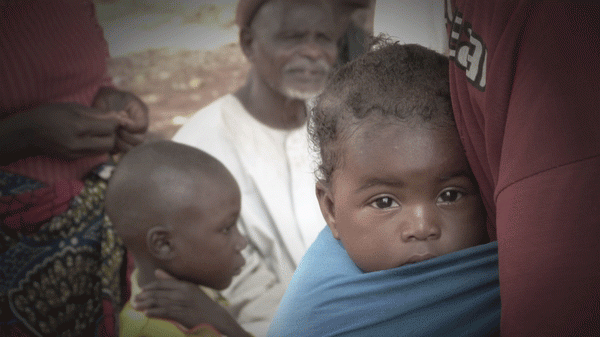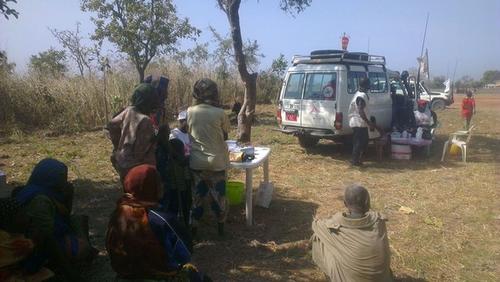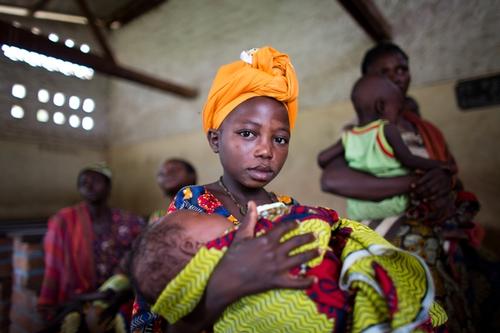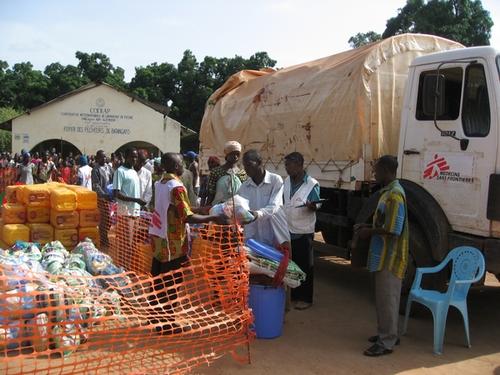Thousands of people in the Central African Republic have taken temporary refuge in the bush to escape violence, and are living without proper shelter or safe drinking water. As a peace deal is reached between the government and rebels, Médecins Sans Frontières (MSF) is continuing to extend its emergency response, and is negotiating to improve access to care in areas where health staff have fled and basic medical services are no longer available.
On 10 January, MSF opened an emergency programme in the government-held town of Damara, which is on the front line of the conflict. The team is providing basic healthcare via mobile clinics. Medical staff are treating up to one hundred patients per day, mainly for malaria and malnutrition.

"The population of the Central African Republic already suffers from some of the worst health indicators in the world, and mortality rates are alarming even in times of peace,” says Sylvain Groulx, an MSF coordinator in the country. ”The recent instability has forced many people to leave their homes. An added burden is the fact that many local health facilities closed when medical staff fled into the bush. The few health posts that have remained open are either running out of basic essential medicines or worse, have been completely looted."
At an MSF programme in Batangafo, in the northwest of the country, consultations at the hospital have dropped from an average of 128 a day, in the 10 days before the town was taken by rebel forces, to 66. Many families are spending their nights in the open, without mosquito nets, and without access to sufficient food and safe drinking water.
In December, MSF sent an emergency surgical team to the town of Kaga Bandoro, east of Batangafo. Six people were treated for bullet wounds, and 27 civilians, including women and children, received treatment for burns after an explosion at a petrol station.
Mobile teams are regularly visiting seven health centres in the capital Bangui, training staff in the use of rapid diagnostic tests for malaria and providing malaria drugs. Staff are on standby, including a team at the Castor maternity hospital, ready to respond in case there is a need of emergency surgical support.
Several tons of medicines have been sent to health facilities that remain open in the areas around Grimari, Bria and Sibut.
Before this conflict, the Central African Republic was already in a state of chronic medical emergency. The population has suffered from decades of violence, displacement and insecurity caused by clashes between rebel groups and government forces, as well as armed bandits. Access to healthcare is limited due to a lack of qualified medical staff, few facilities outside the capital city and frequent shortages of essential medicines. Funding from international donors and aid agencies will likely shrink if there is no guarantee of a stable government or of security for aid workers.
MSF has 75 international staff working in five of the country’s 17 prefectures. All of its seven programmes have remained operational throughout the crisis.





